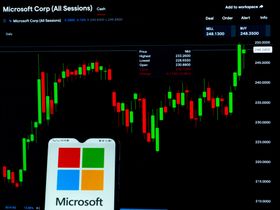Single stocks vs. ETFs: Reverse split & Reorganization fees
Asked 4 years ago
I have had some positions in ETFs ZJPN and Faz, and I got whacked with a reverse split and a reorganization fee for $38. This didn't go down well because both my positions were small. Is this the major downside of ETFs? How do you navigate the fees that come with them? Also: I really like the idea of VOO or SPY. Do they whack you with fees too?
Andia Rispah Igobwa
Monday, September 06, 2021
EFTs are better than single stocks in two situations.
First, when the return from stocks in the sector has a narrow dispersion around the mean, an EFT might be the best choice.
Secondly, if you’re unable to gain an advantage through knowledge of the company, an EFT is your best choice.
Reverse split can signal good or bad news for the investor. A reverse split can mean the company is financially strong enough to be listed on a stock exchange.
Andrew Moran
Wednesday, September 08, 2021
A reverse split is common for both single stocks and exchange-traded funds (ETFs).
It could be executed because the company or fund wants to increase the share price, meet the minimum dollar amounts of the exchange, or extend its shelf life.
It is hard to predict when the stock or ETF would pull the trigger on a reverse split. It is best to comb through the investment's history and determine when it usually employs a reverse split.
Now, when it comes to the reorganization fees, it is your broker that will charge a mandatory reorganization fee following a reverse stock split or a mandatory cash merger. There is no way around it.
VOO recently conducted a 1-for-2 reverse split, while SPY has zero splits in its history.
Please follow our Community Guidelines
Related Articles

The Best Trading Platforms for Beginners and Professionals
Sofia Thai
April 23, 2021

Long Term Microsoft Stock Investment: The Pros and Cons
Andrew Moran
December 23, 2024

Using Platforms and Brokers for Day Trading
Filip Dimkovski
December 23, 2024
Related Posts
Andia Rispah Igobwa
Which Stocks are Best for Beginner Traders to Get Into?
Andrew Moran
How to Know When to Buy, Sell or Hold Stocks
Can't find what you're looking for?
